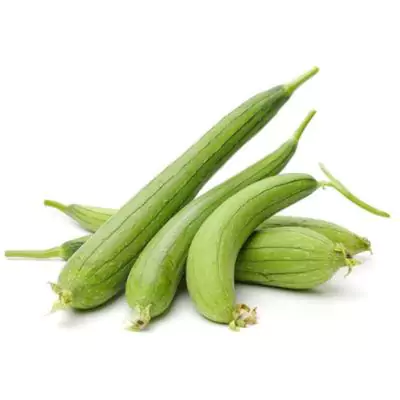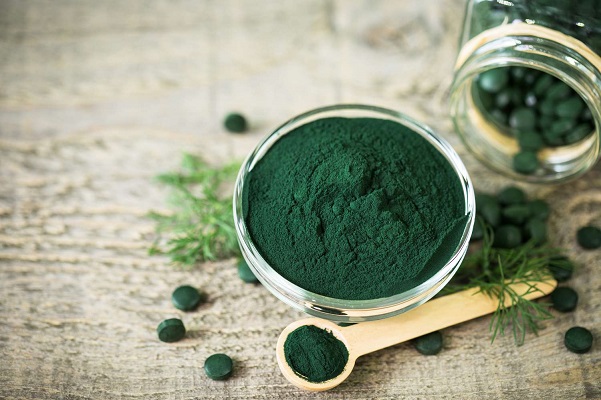On This Page
Overview
The summer squash variety is known as zucchini. It is a long, cylindrical vegetable with a stem end that is significantly smaller. Its natural color is dark green. The flavor is delicate, almost sweet, and the flesh is a pale greenish-white. Melons, spaghetti squash, and cucumbers are near relatives of this veggie with high water content. Warm climates are suitable for growing zucchini, which is often harvested in the summer. Depending on the species, it comes in a variety of sizes and forms and ranges in color from dark green to golden yellow. You will be persuaded to incorporate this summer squash into your diet by its many advantages. In addition to being rich in potassium, manganese, pyridoxine, and vitamin C, zucchini has a special nutritional profile. It has a variety of health-promoting qualities because of these nutrients. In addition to helping with weight loss, zucchini is good for your gut, heart, and eyes.
Synonyms of Zucchini
- Dhundula
- Turai
- Gummadikaya
- Cucurbita pepo
- courgette
Nutritional Facts of Zucchini
Nutritional value per 100 g:-
| Energy: | 15 kcal |
| Carbohydrates: | 2.69 g |
| Sugars: | 1.71 |
| Dietary fiber: | 1 g |
| Fat: | 0.36 g |
| Protein: | 1.14 g |
Phytochemical Constituents of Zucchini
- Lutein
- β-carotene
- Zeaxanthin and dehydroascorbic acid
Therapeutic Uses of Zucchini
- Lowers Blood Sugar Levels
Long-term high blood sugar might result in consequences such as kidney disease, nerve damage, and stroke. People with type two diabetes have been told that eating zucchini will lower their blood sugar.
Low-carb diets, which are typically advised for people with diabetes, can assist to regulate blood sugar levels. Low in carbohydrates and high in fiber, zucchini is an ideal component of any low-carb diet.
- Benefits Eyes
There is a lot of vitamin C and beta-carotene in zucchini. The health and proper operation of your eyes depend on these two vitamins. Zucchini contains the antioxidants zeaxanthin and lutein, which help lessen your risk of developing age-related eye problems.
- Improves Heart Health
Research indicates that eating foods high in fiber can significantly lower the risk of heart disease. Pectin is a form of fiber found in zucchini that has the power to significantly lower harmful LDL cholesterol and enhance heart health. A mineral called potassium can widen blood arteries, which in turn lowers blood pressure. Due to its high potassium content, zucchini has been found to lower the risk of heart attack and stroke.
- Benefits With Digestion
Zucchini is excellent for digestion and contains nutrients that can assist conditions like IBS and Crohn’s disease. Due to its high water content, zucchini efficiently softens stools, making it easier for waste to transit through the digestive tract. The insoluble fiber in zucchini gives the dish additional bulk while also facilitating easier digestion and minimizing constipation or a slow digestive system.
- Aids Treat Asthma
The symptoms of asthma include symptoms like wheezing, coughing, and asthma episodes, as well as signs like tightness and swelling of the airways. Asthma is commonly treated with zucchini’s copper and vitamin C content. According to one study, vitamin C may help to reduce bronchial sensitivity and asthma attacks.
Home Remedies Zucchini
- Stops premature graying and hair fall
When combined with coconut oil, dried zucchini can be used to delay premature graying. This vegetable’s nutrients work to strengthen the roots and restore the pigments, hence preventing hair loss.
- Aids in diminishing inflammation
Applying the zucchini leaves topically can significantly reduce inflammation. Consuming this vegetable can help to reduce swelling of the lymph glands, coughing, and internal inflammations.
- Reduces constipation
Zucchini Contains large amounts of water. Furthermore, it contains a lot of cellulose, a natural dietary fiber. As a result, eating ridge gourd helps to relieve constipation while also reestablishing regular bowel movements and digestion.
- Lowering heat in the body
The body’s alkaline response from the mineral-rich zucchini reduces acidity symptoms and has a cooling impact. Because it is alkaline, it also lessens the burning feeling when urinating and guards against ulcers and excessive heat. Zucchini is one of the foods recommended by Ayurveda for reducing pitta, or heat.

Have A Health Issue?
Consult Online
- Dr. Sahil Gupta (B.A.M.S., M.H.A.)
Ayurvedic Allergy Specialist
CEO & Founder of IAFA®
Ayurvedic Aspects of Zucchini
For thousands of years, people have consumed zucchini. This squash vegetable is regarded as having strong Vata pacifying and Pitta balancing properties. In salads, soups, stews, khichdi, and even smoothies, zucchini is a deliciously nourishing ingredient. Due to its high level of hydration, zucchini is a fantastic food for Vata and Pitta types. People with these constitutions must eat vegetables like zucchini since they tend to dry up.
Side Effects of Zucchini
- Kidney Stones
It includes oxalates, which the body naturally produces, but an excess of them can crystallize and cause kidney stones, which can be addressed but can also cause a serious issue that needs prompt professional attention for treatment.
- Infant
Zucchini is not advised for infants due to its high nutrient content, which could cause allergies and gastrointestinal issues. Before using it, consult an expert.
- Allergic conditions
According to recent studies, eating zucchini may cause the body to experience allergic reactions such as nausea, vomiting, diarrhea, skin allergy, and stomach pain. We advise you to use caution if you frequently consume zucchini.
Conclusion
Since zucchini may give the body the recommended daily amounts of vitamins, minerals, and other nutrients including fiber, protein, vitamin C, potassium, vitamin K, folic acid, selenium, protein, carbs, and manganese, it is not contradictory to refer to it as a superfood. Additionally to improving the body’s overall health, it regulates cholesterol levels and boosts the immune system’s performance. Zucchini consumption in excess can lead to an accumulation of pesticides in the body, which can result in major health problems such as skin rashes, eye problems, heartburn or stomach problems, and neurological problems. So if you encounter negative effects from zucchini, you can consult Dr. Gupta at IAFA to get natural and ayurvedic treatment for allergies and other side effects.
References
- https://en.wikipedia.org/wiki/Zucchini#:~:text=Zucchini%20are%20low%20in%20food,12.9%20mg%2F100%20g)%20.
- https://www.ncbi.nlm.nih.gov/pmc/articles/PMC5537869/#:~:text=Zucchini%20fruits%20(%E2%80%9CYellow%E2%80%9D%20and,were%20determined%20in%20these%20fruits.









